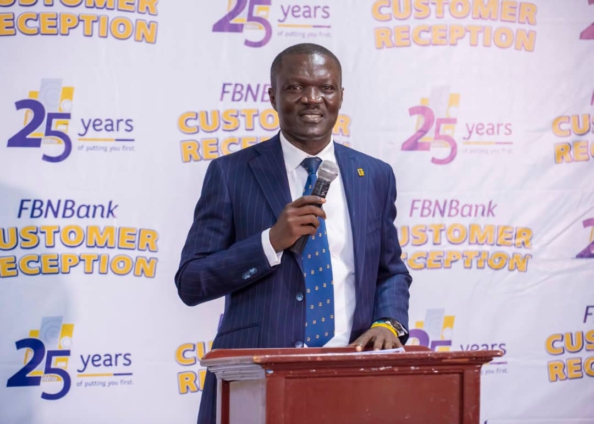The Managing Director of FBNBank, Victor Yaw Asante has indicated that Banks need to respond to the emerging trends in banking, which are driven by changing customer expectations, emerging technologies and the drive for optimal business models. He further indicated that speed and strategy will be vital in achieving a successful response.
Speaking at the just ended 3rd Annual Digital Banking Summit 2021 on the topic “Cash is King – Cashless is the Emperor”, Mr. Asante gave an overview of the current trends in digital banking and the drivers of the cashless method of payment. He also gave an indication of the performance of the various types of digital payment methods employed across the globe so far including mobile money in Ghana.
He intimated that with the current trend, we are headed in a direction where even though “Cash is king, Cashless is the emperor”. According to Victor Yaw Asante, “post the global pandemic, the future of banking will continue to be shaped by changing customer expectations, emerging technologies and the drive for optimal business models. Customer preferences will continue to shift and banks will have to adapt to meet their expectations.
The emerging technologies in the banking sector will also drive changes in processes, products and service offerings and engagements with customers. In the case of business, we would be moving towards adaptable business models given the impact of the dynamic operating environment, technology and innovation on the business models of organisations.”
He added that “the uptake of cashless transactions is projected to increase rapidly through 2030. Actually, the volume is expected to more than double. With global cashless payment volumes set to increase by more than 80% from 2020 to 2025 and from about 1 trillion transactions to almost 1.9 trillion, and to almost triple by 2030, Cashless is definitely the Emperor.
This has created a situation that banks need to respond to. Speed and strategy are vital if traditional banks want to protect their market share and grow profitably in order to deliver greater value to all stakeholders and the economy. Past performance and size are not going to matter as virtual banks are continuously succeeding in radically changing the payment landscape.”
In terms of how banks have to respond, Victor Yaw Asante said that “banks will have to do these seven things in order to take charge of the cashless agenda and be able to meet the expectations of their customers.
These include the following: embracing digital or virtual banking aggressively; being deliberately obsessed with improving and enriching the customer experience in every interaction or touch point; successfully differentiate their brands and services in order to stand out and being able to reimagine or come up with innovative ways to offer a new experience or proposition to customers.
The others are that banks must have the right technology and business savviness supported by agile delivery in order to take their ideas and products to the market quickly. Banks must also make serious efforts to reduce costs of operations and customer service dramatically in order to match the offerings of virtual banks. Lastly, he suggested that banks must be digitally mature and intelligent. This can be achieved if banks invest to drive continuous innovation and digital intelligence.”
The FBNBank MD indicated that the key enablers for the success of the cashless agenda include open application programming interfaces (APIs), a regime of instant payments, a distributed ledger technology and regulated standardisation.










